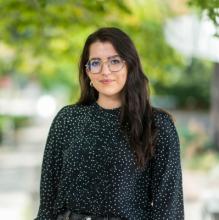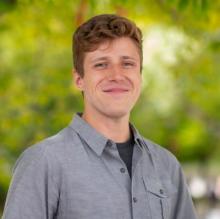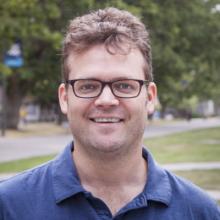Understanding what performance venues can tell us about Vancouver's urban and cultural landscape.
Research Description
My research work explores how large-scale theatrical sites in Vancouver’s downtown have reflected the economic flows of capital and property in the city since 1950. Using three case studies, each of which brings a distinct building, era, and set of economic principles to be studied, I am examining how these sites’ various successes and failures have impacted the urban and cultural landscape in which they are situated. I am establishing recurring themes that surface in the drama of these venues and investigating whether these issues are unique to the urban civic culture of Vancouver. My goal with this work is to bring greater understanding to the interface of the performing arts and Vancouver’s urban environment. By marshaling my research and disseminating it to a wider audience I hope to contribute to the strengthening, in sustainable ways, of performing arts producers in the downtown core.
What does being a Public Scholar mean to you?
Scholarly work is always public – there is always an intended audience for our research projects. New knowledge cannot be generated in a vacuum, and once generated it demands dissemination. For me, being a Public Scholar simply highlights that interconnected process, and acknowledges that we are attempting to broaden the audience for our work to those outside of traditional academic circles. We are highlighting the expansive part of research rather than the insular part that happens on campus.
In what ways do you think the PhD experience can be re-imagined with the Public Scholars Initiative?
The initiative asks us to re-imagine the audience for our dissertations, and to encourage a broader valuation of the work we do. The connections made through this program help us to articulate the concrete uses of the theoretical and exploratory work we do, and to embed our research projects in our communities. In this way, we close the gap between the academy and other ways of learning and researching, helping to erode this false dichotomy.
How do you envision connecting your PhD work with broader career possibilities?
Many of us pursuing graduate degrees in Theatre are both practitioners and researchers, myself included. My PhD work expands my network outside of professional theatre, and I look forward to making use of that expanded network as I continue professional practice and research beyond graduate school. I believe that the combination of these two ways of working gives me a rich skill base and a unique perspective that will serve me well in many career settings.
How does your research engage with the larger community and social partners?
My research puts together some community players that currently have little opportunity for dialogue. It connects local professional artists and producers, cultural planners and policy makers, architects and developers, and critics and theoreticians. My case studies require cross-disciplinary thinking and complex interface between these different fields to tease out the lessons to be learned from their creation, life as community spaces, and in some cases, failures.
Why did you decide to pursue a graduate degree?
My graduate work is an opportunity for me to galvanize my career in professional theatre and to investigate in a deep way the many theoretical and societal issues that it revealed to me.
Why did you choose to come to British Columbia and study at UBC?
I was looking for new tools and new ways of using my mind, and I found that in spades in the Theatre Studies department at UBC. I was impressed that this university is actively growing a forward-thinking, interdisciplinary environment, and I wanted to be a part of that.
Many of us pursuing graduate degrees in Theatre are both practitioners and researchers, myself included. My PhD work expands my network outside of professional theatre, and I look forward to making use of that expanded network as I continue professional practice and research beyond graduate school.




